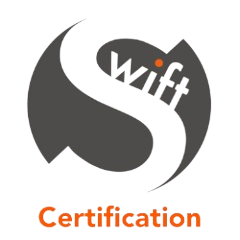In the fast-paced and competitive world of modern business, maintaining standards and demonstrating credibility is critical for success. Whether you’re a large multinational corporation or a small local enterprise, your customers, stakeholders, and regulators expect transparency, consistency, and a commitment to excellence. For small businesses in particular, ISO certifications provide a unique opportunity to meet these expectations and gain a competitive edge. But is ISO certification worth it for small businesses?
In this blog, we’ll dive into the value of ISO certification for small businesses, focusing on four widely recognised standards: ISO 9001 (Quality Management), ISO 14001 (Environmental Management), ISO 45001 (Occupational Health and Safety), and ISO 27001 (Information Security). We’ll cover the benefits of each certification, the challenges associated with obtaining them, and why pursuing these certifications can be a game-changer for small businesses.
What is ISO Certification?
ISO (International Organisation for Standardisation) is an independent, non-governmental international organisation that develops and publishes standards to ensure the quality, safety, efficiency, and reliability of products, services, and systems. ISO standards are globally recognised and apply to businesses of all sizes and sectors.
ISO certification is a formal acknowledgment that a business adheres to a specific set of international standards. Achieving certification requires a thorough assessment of a company’s processes and procedures by an external auditor to verify that the business complies with the relevant ISO standard.
Many small businesses hesitate to pursue ISO certification due to concerns about cost, time, and resource requirements. However, the long-term benefits can far outweigh the initial investment. Let’s explore why.
Why Should Small Businesses Consider ISO Certification?
1. Enhanced Credibility and Reputation
Achieving ISO certification signals to customers, partners, and suppliers that your business is committed to quality, safety, and continuous improvement. It shows that you meet international standards, which increases trust and enhances your reputation in the marketplace. For small businesses, credibility can be a key factor in winning new contracts or competing against larger companies.
2. Increased Efficiency and Cost Savings
ISO standards emphasise streamlined processes, reduced waste, and improved resource management. As a result, ISO certification can help small businesses identify inefficiencies, optimise their operations, and reduce unnecessary costs. Over time, this can lead to significant savings and a more efficient business model.
3. Access to New Markets
ISO certification opens doors to new markets, both locally and internationally. Many larger organisations and government entities require suppliers and partners to be ISO certified as a prerequisite for doing business. For small businesses, being ISO certified can lead to new opportunities, expand customer bases, and increase revenue.
4. Risk Management and Compliance
By adhering to ISO standards, small businesses can mitigate risks and ensure compliance with relevant regulations and industry standards. ISO standards provide a framework for identifying potential issues, managing risks, and ensuring that your business is prepared for any challenges that may arise.
5. Continuous Improvement
ISO standards are designed with the concept of continuous improvement at their core. By adopting these standards, small businesses are encouraged to regularly assess and refine their processes, ensuring that they remain competitive and innovative over time.
Key ISO Certifications for Small Businesses
Now that we’ve covered the general benefits of ISO certification, let’s dive deeper into four key ISO certifications that can bring immense value to small businesses:
- ISO 9001 (Quality Management System)
- ISO 14001 (Environmental Management System)
- ISO 45001 (Occupational Health and Safety Management System)
- ISO 27001 (Information Security Management System)
ISO 9001: Quality Management System (QMS)
Overview
ISO 9001 is the most widely recognised ISO certification, focusing on quality management systems (QMS). It provides a framework for businesses to consistently meet customer expectations and regulatory requirements while enhancing customer satisfaction.
Benefits for Small Businesses
- Improved Customer Satisfaction: ISO 9001 helps businesses maintain high-quality standards in their products and services, leading to happier customers and repeat business.
- Process Standardisation: It encourages businesses to document and standardise their processes, making it easier to scale operations, onboard new employees, and reduce errors.
- Increased Efficiency: By analysing processes and removing redundancies, businesses can operate more efficiently, reduce waste, and lower operational costs.
- Competitive Advantage: Many customers prefer or even require ISO 9001 certification when choosing suppliers. Being certified sets you apart from competitors and can help win contracts that might otherwise be out of reach.
- Continuous Improvement Culture: ISO 9001 fosters a culture of continuous improvement, ensuring that businesses constantly look for ways to improve quality and processes, leading to long-term sustainability.
Is ISO 9001 Worth It for Small Businesses?
Absolutely. ISO 9001 can improve your small business’s operational efficiency and customer satisfaction. Whether you’re in manufacturing, service, or retail, ISO 9001 certification signals that your business is committed to delivering consistent quality.
ISO 14001: Environmental Management System (EMS)
Overview
ISO 14001 focuses on environmental management, helping businesses minimise their environmental impact, comply with regulations, and reduce waste. This standard is particularly valuable for businesses looking to enhance their sustainability practices and appeal to environmentally conscious consumers.
Benefits for Small Businesses
- Regulatory Compliance: ISO 14001 ensures that your business complies with local, national, and international environmental regulations, helping to avoid costly fines or legal issues.
- Resource Efficiency: By identifying areas where resources like water, energy, and materials are being wasted, ISO 14001 helps businesses cut costs and reduce their environmental footprint.
- Improved Brand Image: Consumers and businesses are increasingly prioritising sustainability. ISO 14001 certification demonstrates that your business is committed to environmentally responsible practices, enhancing your brand image and appeal.
- Risk Management: It helps businesses identify potential environmental risks (e.g., waste disposal, pollution) and implement strategies to mitigate these risks, reducing liability.
- Attract Environmentally Conscious Customers: Businesses that implement sustainable practices often attract eco-conscious customers, increasing marketability in sectors where environmental responsibility is a selling point.
Is ISO 14001 Worth It for Small Businesses?
If sustainability and environmental compliance are important to your business or customers, ISO 14001 certification is a smart move. While the initial investment may seem high, the long-term benefits of reduced waste, improved efficiency, and a stronger brand reputation make it a valuable asset for any small business.
ISO 45001: Occupational Health and Safety Management System (OHSMS)
Overview
ISO 45001 focuses on ensuring a safe and healthy work environment by providing a framework for businesses to identify workplace hazards, reduce risks, and prevent accidents.
Benefits for Small Businesses
- Reduced Workplace Accidents: By identifying and managing health and safety risks, ISO 45001 helps reduce workplace accidents, injuries, and illnesses, leading to fewer lost workdays and lower insurance premiums.
- Regulatory Compliance: It ensures compliance with occupational health and safety regulations, helping businesses avoid fines and legal issues related to non-compliance.
- Improved Employee Morale: A safe work environment leads to happier, more engaged employees. ISO 45001 certification shows that you prioritise employee well-being, which can enhance morale and retention.
- Reduced Costs: Fewer accidents mean lower compensation claims, reduced absenteeism, and lower legal costs, all of which can lead to significant savings for small businesses.
- Enhanced Reputation: Just as customers value quality and sustainability, they also value businesses that prioritise the health and safety of their employees. ISO 45001 can enhance your reputation with customers, suppliers, and partners.
Is ISO 45001 Worth It for Small Businesses?
Yes, especially for businesses in high-risk industries such as construction, manufacturing, or logistics. ISO 45001 certification can significantly reduce workplace accidents and boost employee morale, making it a worthwhile investment for small businesses focused on health and safety.
ISO 27001: Information Security Management System (ISMS)
Overview
ISO 27001 focuses on information security, helping businesses protect sensitive information, mitigate cyber risks, and ensure data privacy. In an era of increasing cyber threats, ISO 27001 certification is crucial for businesses handling customer data, intellectual property, or other confidential information.
Benefits for Small Businesses
- Enhanced Data Security: ISO 27001 provides a robust framework for protecting sensitive information, helping businesses safeguard against data breaches, hacking, and other cybersecurity threats.
- Compliance with Data Protection Laws: ISO 27001 helps businesses comply with data protection regulations such as GDPR, HIPAA, and other privacy laws, reducing the risk of legal issues or penalties.
- Customer Trust: In a world where data breaches are becoming more common, ISO 27001 certification signals to customers that your business takes data protection seriously, building trust and credibility.
- Reduced Risk of Data Breaches: The standard encourages businesses to identify vulnerabilities and implement controls to mitigate risks, reducing the likelihood of costly data breaches.
- Business Continuity: ISO 27001 emphasises business continuity planning, ensuring that your business can continue to operate smoothly in the event of a cyberattack or data breach.
Is ISO 27001 Worth It for Small Businesses?
For small businesses handling sensitive data, ISO 27001 certification is invaluable. The cost of a data breach can be catastrophic, and having a robust information security management system in place is critical to protecting your business’s assets and reputation.
Challenges and Considerations
While the benefits of ISO certification are clear, there are challenges that small businesses must consider:
- Initial Investment: Obtaining ISO certification can be costly, with expenses including consultancy fees, audits, and certification fees. However, the long-term savings in operational efficiency and risk mitigation often justify the upfront costs.
- Time Commitment: Implementing an ISO management system requires time and effort. For small businesses with limited resources, this may initially seem overwhelming.
- Ongoing Maintenance: ISO certification is not a one-time achievement. Businesses must continually monitor and improve their processes to maintain certification, requiring ongoing commitment.
Conclusion: Is ISO Certification Worth It for Small Businesses?
In most cases, the answer is a resounding yes. While the cost and time investment may seem daunting, the long-term benefits—enhanced reputation, increased efficiency, access to new markets, and risk mitigation—make ISO certification a valuable asset for small businesses. Whether you’re focused on quality management, environmental sustainability, health and safety, or data security, the appropriate ISO certification can significantly impact your small business’s growth and success.
By adopting ISO standards, small businesses demonstrate their commitment to excellence, paving the way for future growth and ensuring that they remain competitive in an increasingly globalised market.




